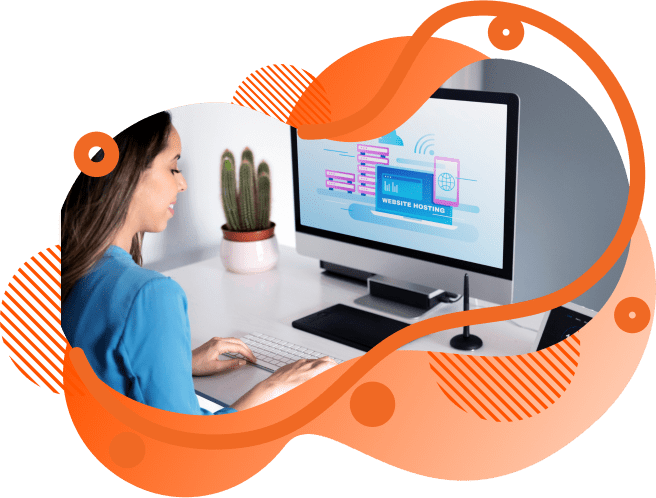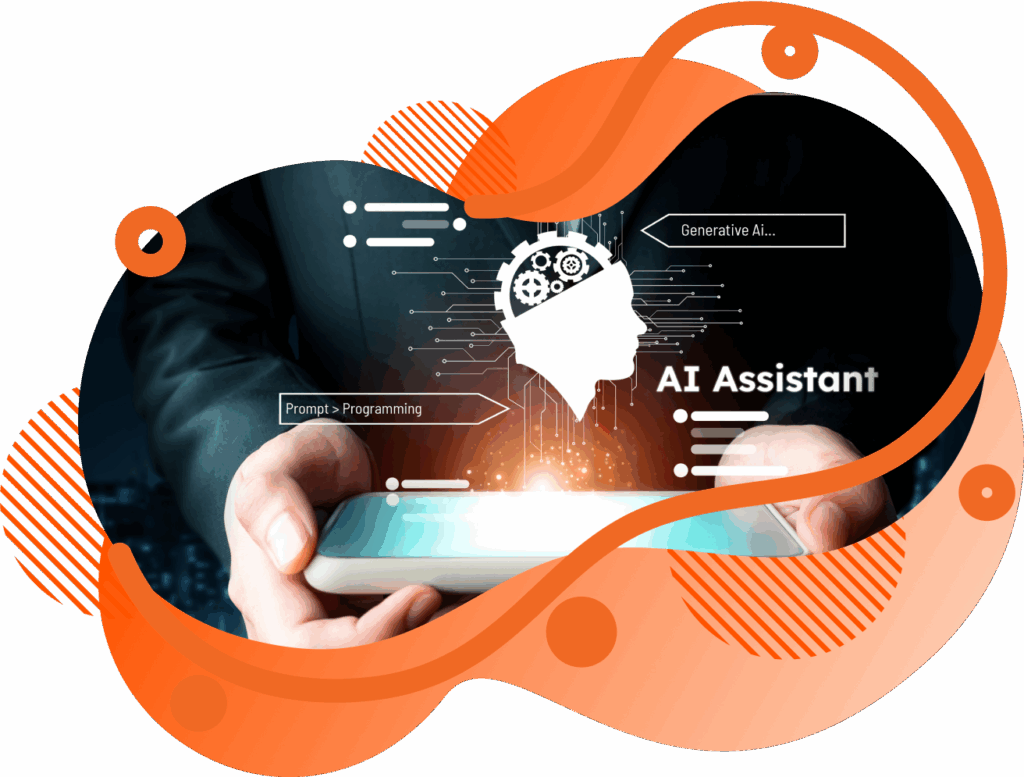MCP Server Development Services

Modern MCP servers are designed to manage key operations through separate, plug-and-play components—each handling tasks like data processing, control logic, device communication, or user interface.
- The MCP server acts as the central controller, managing communication between all modules.
- Microservices or functional blocks are used to handle real-time control, data acquisition, cloud sync, and analytics.
- Communication protocols such as MQTT, OPC UA, and REST APIs ensure integration with third-party systems.
- Modular design allows for quick updates, maintenance, and scalability.
- Distributed control systems offer higher fault tolerance and system reliability.
- Edge-to-cloud connectivity supports smart applications that need both local processing and cloud-level analytics.
- Smart factories
- Autonomous logistics
- Smart cities
- Connected healthcare systems
Client–Host–Server Architecture
MCP uses a client–host–server model:
- Host: AI applications (e.g., Claude, ChatGPT, IDEs) that initiate MCP sessions.
- Client: Manages individual, stateful sessions, handling capability negotiation, and JSON‑RPC messaging.
- Server: Provides defined functionality, such as database queries, file access, or API interaction.
This structured design ensures security, modularity, and easy management of component responsibilities.
Capability-based Interoperability
MCP defines a capability declaration system during handshake, enabling:
- Discovery of tools and services.
- Selective permissioning, so each client only accesses declared features.
- Seamless interop between clients and servers from different vendors (Anthropic, OpenAI, Microsoft).
Context-Aware Communication
At its core, MCP is built for contextual dialogue:
- Servers supply dynamic context (e.g., database schema, file contents, function descriptions) in real-time.
- This empowers clients to make informed requests and maintain session awareness, ideal for LLM-based agents.
Secure & Extensible Protocol
- MCP uses JSON‑RPC 2.0 over STDIO, HTTP, or WebSockets, allowing trust zones and granular access controls.
- Hosts mediate authority, ensuring servers only receive relevant context, and users must explicitly authorize access paths.
- Optional OAuth integration and advanced guardrails (e.g., MCP Guardian) enhance authentication, logging, and safety.
Faster, Standardized Integrations
MCP eliminates the need for custom connectors. A single MCP server can connect to multiple AI clients or tools, greatly reducing development time and maintenance effort.
Real-Time Context Injection
MCP delivers dynamic, context-aware information (e.g., database schemas, file contents) to AI hosts during interactions, enabling more accurate and informed responses.
Reduced Hallucinations, Improved Accuracy
By providing factual data from trusted sources, MCP significantly lowers the risk of AI-generated errors or hallucinations, especially in mission-critical applications.
Reusable, Modular Architecture
Each MCP server exposes defined capabilities (tools or data resources) that can be reused across applications, facilitating consistent AI behavior and easier updates.
Scalable & Vendor-Neutral Framework
An open standard intended for compatibility with multiple LLM providers and development environments, MCP ensures future-proof interoperability.
Stronger Security & Compliance Controls
With client–host authorization, capability declaration, and optional OAuth/GUARD tools, MCP fosters secure interactions and limits access to only what is necessary.

With MCP, AI agents can orchestrate workflows across Slack, databases, ticketing tools, and cloud services. For example, an AI could fetch task metrics, update JIRA tickets, and post summaries to Slack—all within a single, coherent session.
MCP-connected database servers allow LLMs to understand schemas, execute SQL queries, and generate concise summaries in natural language. This is ideal for financial reporting, sales dashboards, and inventory insights.
Large organizations integrate MCP with systems like Confluence, SharePoint, and CRMs, enabling AI to retrieve documents, provide access-aware insights, and generate context-sensitive summaries—all while enforcing standard access controls.
In scenarios like event planning or IoT monitoring, MCP provides AI with live context—weather updates, sensor data, and inventory levels—so agents can adjust configurations, issue alerts, and automate controls dynamically.
Requirements Gathering & Architecture Planning
We collaborate closely with stakeholders to outline use cases, identify data sources (e.g., databases, APIs, file systems), and define security & compliance constraints. Our architecture plans include capability declarations, session logic, and protocol support—perfectly aligning with MCP community standards.
Custom MCP Server Development
Using languages like Python, TypeScript, Java, and C#, we build bespoke MCP servers that provide:
- Tools (invokable functions for LLMs)
- Resources (read-only data feeds)
- Prompt templates – All engineered with robust input validation, structured outputs, and error handling layers.
Security, Compliance & Policy Enforcement
We embed OAuth-based access control, role-based permissions, and audit logging. Leveraging solutions like MCP Guardian and ETDI, we address vulnerabilities like tool poisoning, prompt injection, and cross-tool contamination.
Integration & Context Injection
We integrate MCP servers with LLM hosts (e.g., ChatGPT, Claude, Gemini), enabling real-time capability negotiation, session context delivery, and event-stream management, ensuring your AI responds with up-to-date knowledge.
Stateful & Scalable Deployment
Implementing stateful MCP servers using Cloudflare Durable Objects, Docker, and Kubernetes, we support durable session workflows (like checkouts or conversational history) with high availability and performance.
Monitoring, DevOps & Governance
We deploy centralized MCP analytics, capturing tool usage, session latency, and error rates. Our DevOps integration provides seamless model updates, rollback capabilities, and auditable trace logs.
Documentation & Developer Enablement
We supply full API docs, interactive workshops, and sample code. We also maintain a tool registry, schema definitions, and code demos aligned with the MCP specification best practices.
Maintenance, Support & Enhancement
Post-deployment, our team provides continuous security patches, performance tuning, and integration of new tools (like database servers, web scrapers, BI connectors) so your MCP infrastructure remains evolving and future-ready.
At Vervelo, we are leading the charge to transform the healthcare industry by utilizing GenAI. Healthcare businesses are able to provide more intelligent and effective care because to our proficiency with generative AI technologies. By incorporating cutting-edge AI technologies into clinical, administrative, and operational workflows, we improve patient outcomes, expedite procedures, and assist healthcare workers in making better decisions.
Pune, Maharashtra, India
What is the Model Context Protocol (MCP)?
Why is MCP important for AI applications?
How does MCP work in practice?
- A host (e.g., Claude Desktop) initiates the session.
- Clients handle communication via MCP.
- Servers expose tools, resources, and prompts – Once authorized, AI agents can discover, access, and evolve behavior based on these capabilities.
Can MCP improve AI accuracy and reduce hallucinations?
Is it secure to use MCP with sensitive systems?
Which programming languages and environments support MCP?
How do I get started building an MCP server?
Which industries are using MCP today?
- Developer tooling (IDE assistants)
- Knowledge management systems
- Agentic workflows
- Regulated sectors (finance, healthcare, enterprise) – Organizations like Replit, Sourcegraph, Microsoft, and Wix are already integrating MCP in production